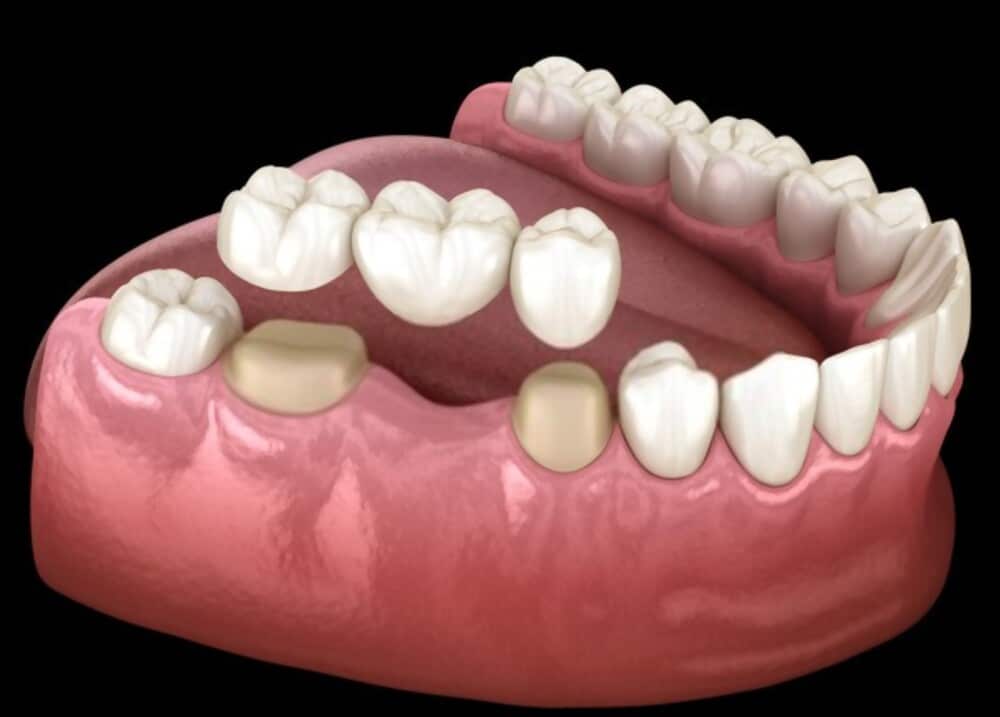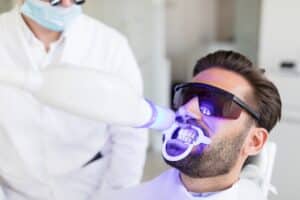A fixed replacement that substitutes one or more missing teeth in your mouth is known as a dental bridge. Dental bridges are designed to look, feel, and operate like real teeth. They are also manufactured to order for each patient. A dental bridge can repair the gap left by one or more lost teeth with one or more artificial teeth. A bridge is normally constructed with crowns on either side of the missing tooth or teeth that support the pontic and are cemented in place.
What are dental bridges?
A dental bridge is a long-term implant that replaces a lost tooth or teeth. It’s made up of numerous components that are fused to fit into the space left by your tooth or teeth. Partial dentures can be replaced with dental bridges. They serve both practical and cosmetic objectives, allowing you to eat and speak more comfortably while also improving the appearance of your teeth. The bridge could be composed of a variety of materials, including gold, alloys, or porcelain.
Who requires a dental bridge?
If you have a lost tooth or teeth, dental bridges can help. Tooth decay, gum disease, and injury are the most prevalent causes of losing teeth. You could also have been born with missing teeth as a result of a congenital disease. You must have healthy teeth on each side of the missing ones to acquire a dental bridge.
The Advantages of Dental Bridges
Dental bridges can give a variety of advantages, including:
- Bringing back the natural appearance of your mouth/smile
- Restoring normal speech abilities, as missing teeth might inhibit accurate enunciation.
- preserving normal facial structure by limiting bone loss from the jaw at the location of the lost tooth/teeth
- Restoring the capacity to chew food properly
- Preventing neighboring teeth from migrating into the empty gap, which can cause biting issues and other complications.
How do you care for your dental bridge?
The success of the dental bridge is dependent on the remaining teeth’ health and strength. It is especially crucial with a bridge to avoid tooth decay and gum disease, which can lead to tooth loss. You should do the following for healthy tooth and gum care:
- Brush twice a day and floss daily: A dental professional can show you how to brush and floss properly. You will most likely use a threader floss, which allows you to glide the floss between the bridge and your gum.
- Get expert cleanings on a routine basis: Seeing a dentist regularly can help spot issues early when treatment is more effective.
- Consume a well-balanced diet: Include plenty of fruits, vegetables, and fiber, while limiting chewy, fibrous items including some meats.
We hope that this post has informed you about the perks of dental bridges. If you are searching for the best Dental Bridges services in Keller, Texas, then come to ABC 123 Dental – Keller because missing teeth can impede your ability to eat, speak, and smile.





